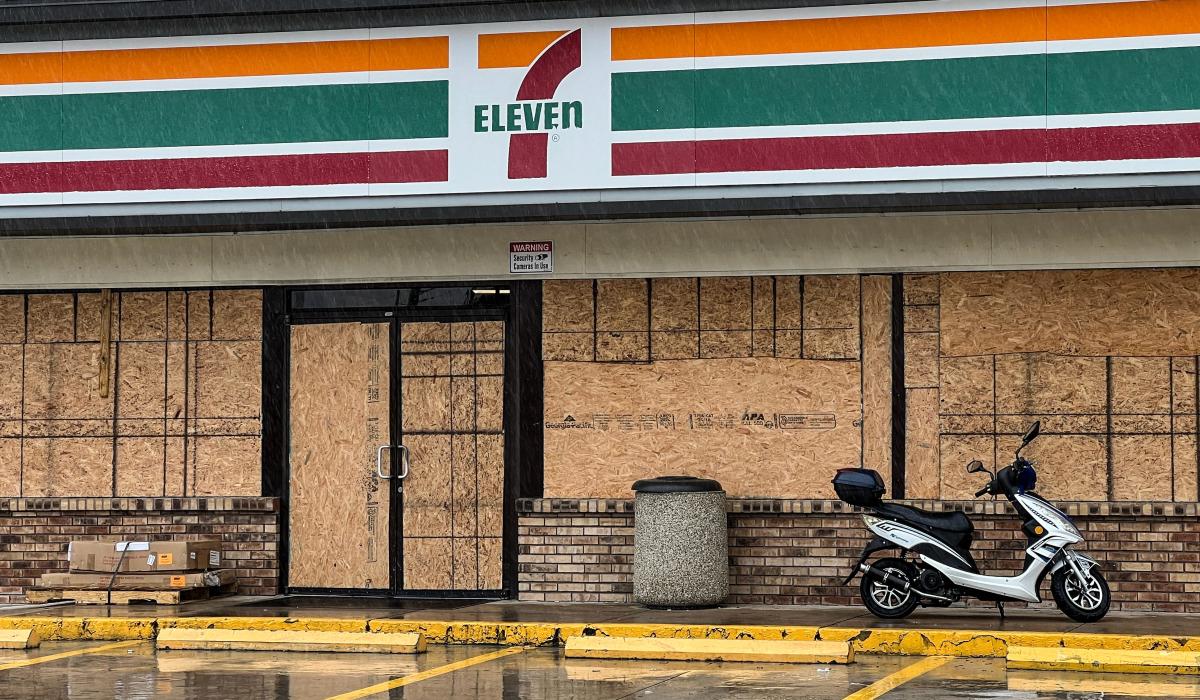Weather alerts via text: Sign up to get updates about current storms and weather events by location
As of Tuesday morning, nearly 1.9 million customers in Florida, Georgia, Tennessee, North and South Carolina and Virginia are still without power as the southeast United States struggles to recover from Hurricane Helene.
Now another monster storm, Hurricane Milton, threatens Florida with a life-threatening storm surge, rain, catastrophic winds and torrential rain.
Back-to-back major hurricanes will complicate restoration attempts, officials said, and Floridians can expect lengthy outages. Power companies have already staged personnel and more are coming.
“Linemen and power restoration resources are being marshaled in advance of the storm, as is our standard practice,” Gov. Ron DeSantis said in an emergency response update Tuesday morning. “We now have in excess of 37,000 linemen that are either in or en route to the state of Florida. As most people know, Hurricane Helene left a lot of damage in some of our neighboring states, and there have been a lot of linemen surged into those states, still working on major power restoration. So some of these linemen are coming into Florida from as far away as California.
“We are hoping that that number ends up in excess of 40,000, so that would be significantly more than what we had staged for Helene, which was a very rapid restoration. Of course, this storm could present much different challenges,” DeSantis said.
The governor also said that electrical co-ops are preparing, with 4,200 linemen staged with plans to have 7,500 linemen available by landfall.
“Everybody has been coming together to do what they can to be ready for this potentially very complicated power restoration mission,” he said.
Hurricane Milton could be historic: How it compares to the most intense US storms
How soon will power be restored after Milton passes?
“If Milton continues on its path, we are looking at back-to-back major hurricanes hitting Florida,” Florida Power & Light President and CEO Armando Pimentel said in a release Monday. “We are prepared to respond, but customers need to be ready for the very real potential of widespread, extended outages.”
Duke Energy Florida announced the company was mobilizing about 10,000 responders including crews from Kentucky, Ohio and Indiana as it prepared for an expected 1 million power outages.
Once power outages begin, restoration efforts will be launched in force wherever and whenever it is safe to do so. But restoration may run into problems left over from the last storm.
“Heavy rain across the state over the last few weeks has saturated the ground ahead of Milton’s projected landfall,” FPL said. “This makes trees and other vegetation susceptible to falling and damaging powerlines — even in areas forecast to get little to no wind from the storm. This will magnify Milton’s impact, particularly in places that still have wet conditions and storm debris from Hurricane Helene.”
Power restoration will also be prioritized to restore power to the largest number of customers as quickly as possible. According to FPL, priorities are given to:
-
Power plants and damaged lines and substations
-
Critical facilities such as hospitals, police and fire stations, communication facilities, water treatment plants and transportation providers
-
Major thoroughfares with supermarkets, pharmacies, gas stations and other needed community services.
-
Smaller groups and local areas
In the meantime, here are some things you can do to get ready.
How to prepare for a power outage
-
Take an inventory of the items you need that require electricity and make sure you have batteries or alternative power sources for all of them. Charge up any portable chargers or power banks.
-
Talk to your medical provider about medical devices powered by electricity and your best course of action. Ask about any refrigerated medicines you need and how long they can be stored at higher temperatures.
-
Make sure you have enough nonperishable food and water. Keep your freezers and refrigerators closed. Experts say a refrigerator will keep food cold for about four hours, while a full freezer will keep the temperature for about 48 hours. Use coolers with ice if necessary.
-
Unplug any appliances or electronics in your home, including internet modems and TV cables to avoid problems with power spikes when it comes back on.
-
Do not turn off utilities unless you suspect damage or local officials tell you to.
During and after the storm
-
Do not walk, swim or drive through floodwaters. You can easily get infected and there’s no way to tell if a loose power line could be in there. Back up and pick another path.
-
If rising floodwaters threaten your home or business, or if you are forced to evacuate, turn off your power at the circuit breaker panel or fuse box.
-
Stay away from power lines that have fallen or are sagging. Assume any power line you see is active. Report downed lines to 911 and your local power company and stay at least 35 feet away from them and anything they are touching.
-
If a power line falls across a vehicle while you’re in it, stay in it and call for help. If you have to get out due to fire or flooding, jump out and land with both feet, make sure you do not touch the car and the ground at the same time.
-
Never touch a circuit break or replace a fuse while standing on a wet surface. If a circuit breaker has been tripped, contact an electrician to inspect them before turning them on.
-
Don’t use any electrical equipment or electronics that have been submerged. Have a qualified electrical inspector check the electrical system.
How do I report or check on power outages?
Check your utility bill for contact information. Some common power companies in Florida are:
-
Beaches Energy: Call 904-247-6241.
-
Central Florida Electric Cooperative: Call (800) 227-1302, report online or through the CFEC Power Partner app, Check the outages map here.
-
Clay Electric Cooperative: Call 1-888-434-9844. Check outages map.
-
Duke Energy: Click here, use the app or call 800-228-8485, check outages map
-
Florida Power & Light: Report it online or through the app, or check your utility bill for your local number. Check the outages map.
-
Fort Pierce Utilities Authority: Call (772) 466-7703.
-
Jackson Energy Authority: Call 731-422-7500 or report online. Check outages map.
-
Lakeland Electric: Call (863) 834-4248, report online or check the outages map
-
New Smyrna Beach Utilities: Call 386-427-1361, report online or check the outages map
-
Orlando Utilities Commission: Call 407-423-9018, text OUT to 69682, or log in to report online. Check the outages map.
-
Peace River Electric Cooperative: Call 800-282-3824, report online or through the app, or text PRECO to 800-282-3824. Check outage map.
-
City of Tallahassee: call 850-891-4968 or 711 (TDD), report online at Talgov.com/Outages or use the DigiTally mobile app
-
SECO Energy: Call (352) 793 -3801 or report online. Check outage map.
-
Talquin Electric: Sign up here for text notification and outage reporting via text, check outages alerts
-
TECO Energy Tampa Electric: Call (813) 223-0800 or 1-888-223-0800 or log into your account. Check outages map.
-
West Florida Electric: Call 1-844-688-2431 or text 1-800-342-7400. Check outages map.
-
Withlacoochee River Electric Cooperative: Call 352-567-5133, report online or through the app.
Contributing: Samantha Neely, USA TODAY NETWORK-Florida
This article originally appeared on The Daytona Beach News-Journal: Hurricane Milton power outages may last awhile, FPL, Duke Energy say















